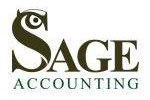SDLT holiday is over
A number of coronavirus support schemes came to an end in September, including the SDLT holiday. What does this mean for transactions which have not yet completed?

The SDLT holiday in England initially ran from 8 July 2020 to 31 March 2021, increasing the 0% band for residential properties from £125,000 to £500,000. It was then extended until 30 June 2021. However, rather than abruptly returning to £125,000, there was a tapering period from 1 July 2021 where the 0% band became £250,000. This ended on 30 September 2021. But what is the SDLT position if a buyer has exchanged contracts before 30 September, but completion doesn’t take place until later on?
The date that triggers the SDLT charge is the completion date, not the date of exchange (which is generally the most important date when looking at capital gains tax). This means that the 0% band is limited to £125,000. Of course, if the individual is a first time buyer, the 0% band is £300,000 and so this may take the sting out of the holiday ending to a certain degree. There is a similar relief in Scotland, though the enhanced 0% band is £175,000. Wales has no first time buyer relief, but the standard 0% is a more generous £180,000 in any case.
Related Topics
-
Directors’ fees - can you escape PAYE?
You’ve been asked to join the board of a company in a purely advisory role. For tax and NI efficiency you want your fees to be paid to your own company. Does this arrangement fall foul of HMRC’s off-payroll rules?
-
P46 (car) deadline
-
Filing deadline for self-assessment tax returns

 This website uses both its own and third-party cookies to analyze our services and navigation on our website in order to improve its contents (analytical purposes: measure visits and sources of web traffic). The legal basis is the consent of the user, except in the case of basic cookies, which are essential to navigate this website.
This website uses both its own and third-party cookies to analyze our services and navigation on our website in order to improve its contents (analytical purposes: measure visits and sources of web traffic). The legal basis is the consent of the user, except in the case of basic cookies, which are essential to navigate this website.